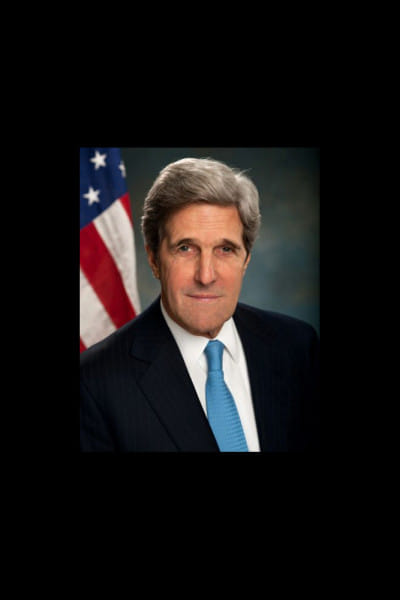Our plan for countering violent extremism

SHOW the world the power of peaceful communities, and tackle bad governance that breeds frustration.
Throughout our history, we have faced threats from aggression, genocide, chaos and dictatorship. Today we are asked to wage a new war against a new enemy. The battlefield is different, and so are the weapons that we need to overcome that enemy and triumph.
The rise of violent extremism represents the pre-eminent challenge of the young 21st century. Military force is a rational and often necessary response to the wanton slaughters of children, mass kidnappings of schoolgirls, and beheading of innocents. But military force alone won't achieve victory. In the long term, this war will be won only by deploying a broader, far more creative arsenal.
A safer and more prosperous future requires us to recognise that violent extremism can't be justified by resorting to religion. No legitimate religious interpretation teaches adherents to commit unspeakable atrocities, such as razing villages or turning children into suicide bombers. These are the heinous acts of individuals who distort religion to serve their criminal and barbaric cause.
A safer and more prosperous future also requires us not to be distracted by divisions grounded in hatred or bias. There is no room in this fight for sectarian division. There is no room for Islamophobia or anti-Semitism. Violent extremism has claimed lives in every corner of the globe, and Muslim lives most of all. Each of us is threatened, regardless of ethnicity, faith or homeland. We must demonstrate to the terrorists that rather than divide us, their tactics unite us and strengthen our resolve.
Toward that goal of unity, and of action, President Obama has been hosting a summit in Washington this week that is bringing together leading figures from local and national governments, civil society, and the private sector around the world. This summit at the White House and State Department will expand the global conversation and, more important, adopt an action agenda that identifies, shares and utilises best practices in preventing and countering violent extremism. And when world leaders gather at the United Nations General Assembly next fall, a key topic of discussion will be the steps we've all taken to fight extremism based on the agenda we outline this week.
Put simply, we are building a global partnership against violent extremism.
Success requires showing the world the power of peaceful communities instead of extremist violence. Success requires offering a vision that is positive and proactive: a world with more concrete alternatives to the nihilistic worldview of violent extremists. Success requires empowering leaders from Los Angeles to Lagos, Paris to Peshawar, and Bogotá to Baghdad to take the reins in this effort—because terrorists don't exist in a vacuum. They require acquiescence from the broader population, if not outright support. They recruit among the disaffected and disenfranchised, but also among those of all backgrounds on a misguided quest for meaning and empowerment. They exploit anger, ignorance and grievance.
Eliminating the terrorists of today with force will not guarantee protection from the terrorists of tomorrow. We have to transform the environments that give birth to these movements. We have to devote ourselves not just to combating violent extremism, but to preventing it. This means building alternatives that are credible and visible to the populations where terrorists seek to thrive.
The most basic issue is good governance. It may not sound exciting, but it is vital. People who feel that their government will provide for their needs, not just its own, and give them a chance at a better life are far less likely to strap on an AK-47 or a suicide vest, or to aid those who do.
We must identify the zones of greatest vulnerability, the places that could descend into the chaos that breeds terrorism—or that could turn the corner and be the hotbed of growth or innovation. And then we must tailor our efforts and target our resources to meet the specific needs of those places. It may be training young people so they can get jobs and envision a future of dignity and self-reliance. It may be working to eliminate corruption and promote the rule of law, so that marginalised communities can enjoy security and justice. It's very likely both, and of course much more.
There are precedents that can lead us. We've combated violent extremism before. We know there are tools that work. We also know the power of the international community to make positive progress when we've come together to combat other challenges, such as when we combined our efforts most recently to fight Ebola. We need to funnel more resources, creative ideas and energy into the fight against extremism and work closely with effective local organisations and governments to make sure those resources are used properly.
This week's summit won't solve all these problems, but it can catalyse a global effort. But let me be clear: We are in this for the long haul. We can send a clear signal to the next generation that its future will not be defined by the agenda of the terrorists and the violent ideology that sustains them; we will not cower, and we will prevail by working together. Indeed, there are roles for everyone, from religious and government leaders to academics, NGOs and the private sector. Our collective security depends on our collective response.
The 20th century was defined by the struggle to overcome depression, slavery, fascism and totalitarianism. Now it's our turn. The rise of violent extremism challenges every one of us, our communities, our nations and the global rule of law. But the extremist forces arrayed against us require that we charge forward in the name of decency, civility and reason.
The writer is Secretary of State of the United States.
(This article was published in the Wall Street Journal on February 18, 2015.)

 For all latest news, follow The Daily Star's Google News channel.
For all latest news, follow The Daily Star's Google News channel. 



Comments